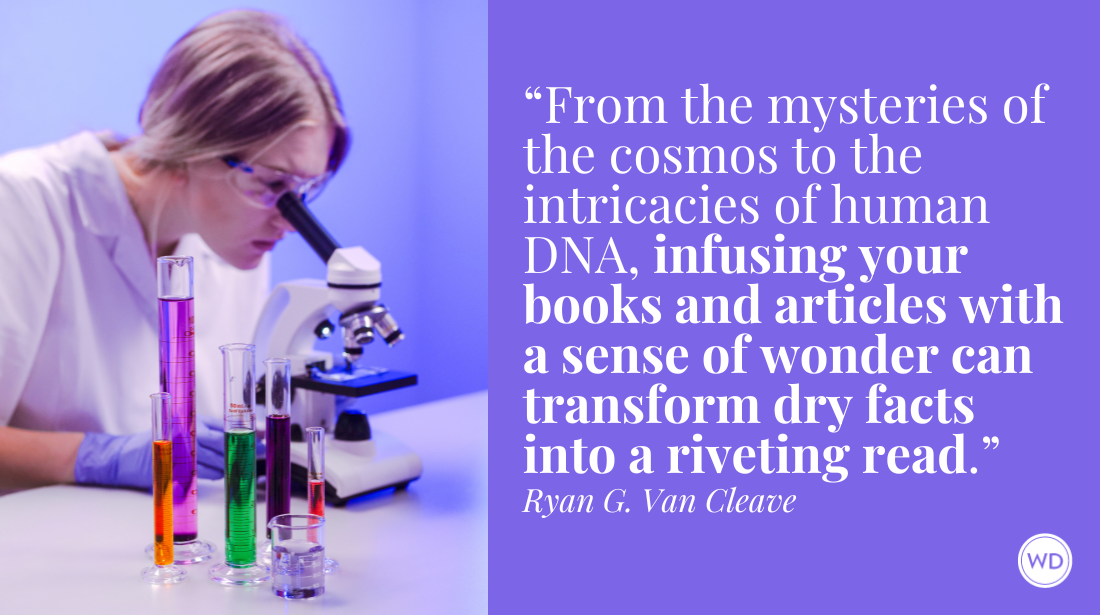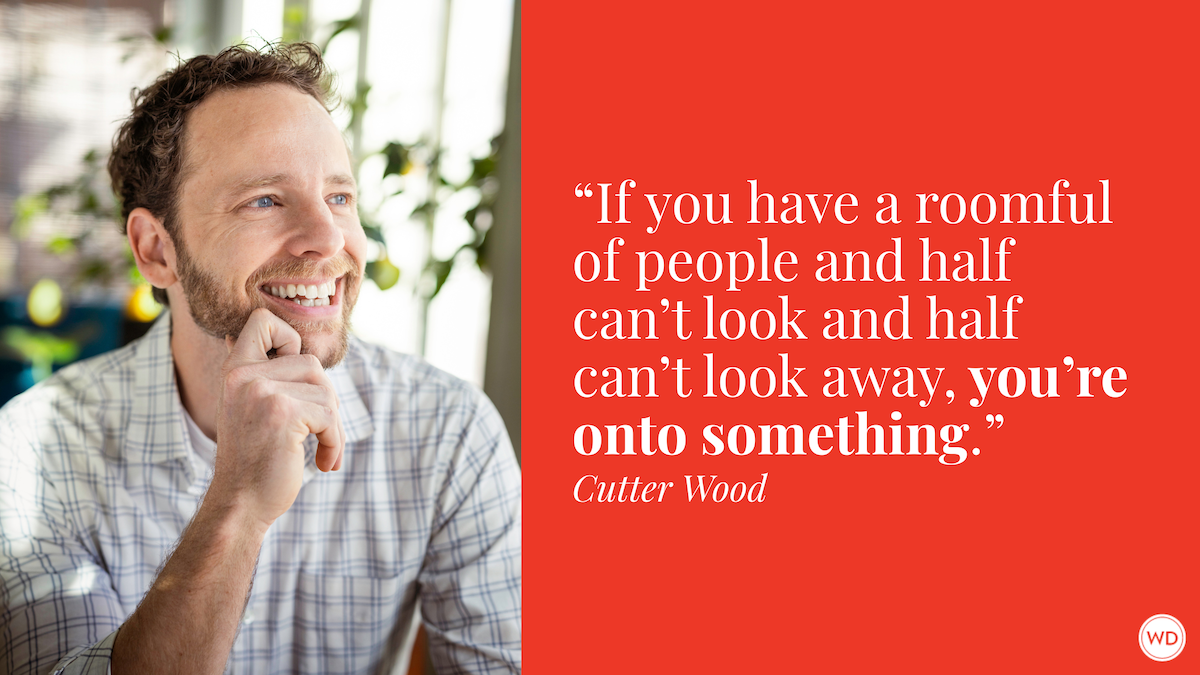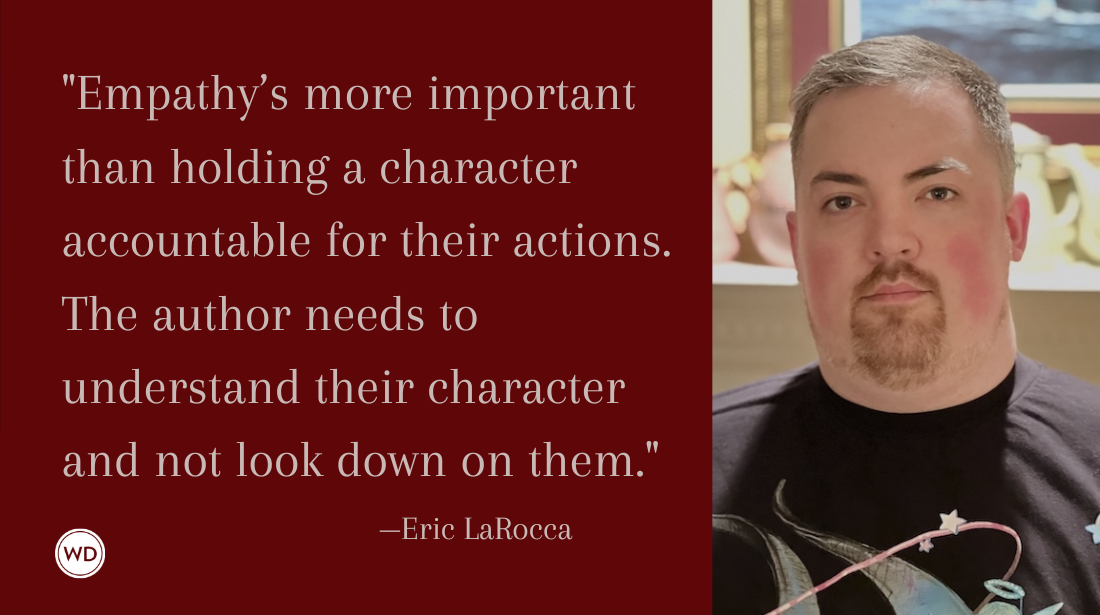Celeste Ng: The WD Interview Sneak Peek
For our 100th anniversary issue Tyler Moss sat down with novelist Celeste Ng for an interview. Here’s a sneak peek of their conversation including writing during COVID-19 and how Reese Witherspoon discovered Little Fires Everywhere.
Celeste Ng is on fire.
Or perhaps it would be more appropriate to say she has Little Fires Everywhere.
The adaptation of her second bestselling novel is a hit on Hulu. The book has (again) topped the Amazon and New York Times charts. And she’s just received a prestigious Guggenheim Grant.
Ng is slated to appear as the subject of a special extended WD Interview in November/December—an action-packed double issue celebrating the 100th anniversary of Writer’s Digest. But when we spoke to her in mid-April (via Skype, practicing responsible social distancing), there was just too much good material to sit on it through the summer.
Look for the full interview on newsstands mid-November, but until then, find some of the outtakes from our conversation—including her thoughts on productivity while sheltering in place, on the success of her Hulu show, as well as on platform and perseverance.
The Atlantic published a piece about how Shakespeare supposedly wrote “King Lear” while in quarantine. There’s a kind of cult of productivity around creatives right now—pressure to leverage all this supposed free time we have. Have you been writing during your time spent in isolation?
I’ll be totally honest—I have not been writing a lot. I’m hoping that’s going to turn around pretty soon. I have a school-aged kid, so we’re having to do homeschooling with him. We’re starting to get more support from the school, so that’s helping. I feel like generally, there’s this myth around creativity that somehow adversity makes you more productive and what you create more valuable. And maybe for some people that’s true. But I think for a lot of people, instability is really counterproductive. It’s that myth of the starving artist: This is going to bring out the best in you, and it’s going to inspire you. Maybe. But honestly, for most people, it just makes it harder to work.
Actually, there was a New York Times article that said, “Now is not the time to be productive.” I bookmarked that for myself and sent it to my friends, because we’re all struggling. I think a lot of writers have this feeling of, We’re not doing enough; we need to really be earning our keep and doing stuff. And it’s hard. I don’t honestly know anybody who’s writing a lot, and if they are, I hope they just don’t tell anybody.
What’s it like seeing your novel take shape for television, with your characters played by incredible talents like Reese Witherspoon and Kerry Washington?
It’s been surreal, in a good way. It has been wonderful to see new people discover the story. It’s really fun on Twitter to see people say, “Oh no, what’s going to happen?” Because they haven’t read the book and don’t know.
You don’t often get that experience as a writer of watching someone experience your story in real time. That’s been a delight for me, and is changing the way I’ve been thinking about storytelling in some ways. It’s also been a huge comfort to know people are out there watching, reading, thinking about these characters.
But it’s also just strange because it’s my story, and yet it’s on the screen. I keep turning to my husband and saying, “I think this TV show might actually be happening.” And he keeps turning to the TV where it’s playing and saying, “I think it might be.” It’s just a huge trip, honestly.
I read about an exchange in which you approached Reese Witherspoon at a party and gave her a copy of Little Fires Everywhere. I love that anecdote. It’s the perfect example of a “shoot your shot” type moment that we champion so much at WD: Encouraging writers to have the courage to harness opportunity when it reveals itself. Can you walk us through that exchange and describe how you were feeling?
Well, that’s not exactly how it happened, but I love that that’s the story because it makes it seem like I took the initiative. What happened is I met Reese at a cocktail party, but I didn’t go up. My memory of it (and I’m sure she remembers it differently, because she told the [book-giving] story) is that I turned around and she was standing right there. It was like suddenly being confronted with Elle Woods. And she was like, “Hi, I’m Reese.” And in my mind I was like, I know who you are, you don’t need to introduce yourself. You’re very recognizable. But in my outside voice I said, “Hi! I’m a big fan of yours.” Then we chatted.
I don’t know how she had heard about my work, but she’s a reader, so I guess it’s not that much of a surprise. What happened on my end is that I work with a film agent, and he sent a copy of the book to her producing partner, Lauren Neustadter. Lauren read it and loved it and gave it to Reese, so I wish I could take the credit for having the initiative and approaching Reese Witherspoon. I can’t, honestly. But I’m really happy that we found each other.
Literary agents these days oftentimes want to know about an author’s “platform” right up front, before they’ve even read any pages. I think a lot of aspiring authors hear the word “platform” and it sends a shiver down their spine. You have more than 140K Twitter followers. How do you approach Tweets, and what advice would you give to writers who may be intimidated by building a presence on social media?
I’m going to hear it from every agent that I know after I say this, but with that disclaimer, I think for writers it’s absolutely much more important to be thinking about your work before the platform. The platform in some ways feels easier because, for me, when I’m writing, anything else seems easier. Scrubbing the grout in my shower with a toothbrush sounds easier than doing the draft. But the truth is that even if agents want a platform, it’s always going to be the frosting. And there’s no point in having the frosting if you don’t have the cake. The cake really is your writing.
Honestly, most agents that I know would kiss their hands and bless the sky if they found a writer who had great writing and a platform. But they're really in it because they love writing. And I think every agent I know would honestly take a writer who has amazing writing and no platform over a writer who has a platform and not much substance to their work. So to the specifics of it, if you want to try to build a platform, I think the way to do that is through what feels real and honest to you.
Think of it as a way of engaging, rather than promoting yourself. It will feel less gross to you, first of all, because I hate going out and being like, Hey! Buy my book. And nobody follows people who only say “buy my book.” But if you think about it as saying, Hey, I read this really interesting thing and I want to share it. Or, Hey, I really like your work and I just wanted to reach out and send you a note and say honestly, with no agenda, I like your work. It becomes a reciprocal thing. And it becomes a genuine thing, and I think people can see that and respond to it.
Your short story “Girls, at Play” won a Pushcart Prize and sort of launched your career, but that story had been rejected 17 times before it was published. How did you maintain the resolve to keep submitting through rejection?
We talk a lot about the quality of the writing, and of course that’s important. The craft. But a lot of it also just has to do with persistence and faith. And that’s a lot harder to teach people, right? I think you have to find a balance between listening to other people’s critiques—if everybody tells you this story is not working, or doesn’t make sense, take that seriously. But at the same time, if you really look at it and go, I think this really does make sense. It really does work, you keep trying. Eventually, I do think the work finds its place in the world, and that quality work eventually rises up to the top.
Every writer I know has that story. There was a moment in grad school where a bunch of us were hanging out together, professors and students, and the professors started counting up the story they had that had received the most rejections and averaging out what it was. And I think they came out to a little bit over a dozen. It was something between like 14 and 17 rejections. And for all of us students who were maybe just starting to send out work, there was this moment of, Oh, that’s just how it goes. And I think you have to kind of listen first and foremost to the work itself. And it takes practice learning how to set aside your ego and set aside all those external pressures and really focus on the work. But I think the more you practice doing that, the easier it gets critiquing and going, Is this working, or is it not? But if you listen to the work and it’s working, then you keep going, and that’s where the perseverance kicks in.
If you believe in it, keep going. It takes time. The reason I kept sending out that story quite honestly was because I felt like it had something. I liked it. I didn’t know what else to do with it, and I couldn’t figure out what else it needed. So I kept sending it out, which was in some ways easier because I was working on other things. The story would go out. It would come back. I’d send it out again and it would come back. It was like somebody kept throwing this frisbee at me. And eventually it found a place. It’s like that saying—success is 1 percent inspiration and 99 percent perspiration. The importance of perseverance is way understated in writing.
Tyler Moss was an editor-at-large for Writer's Digest magazine.








